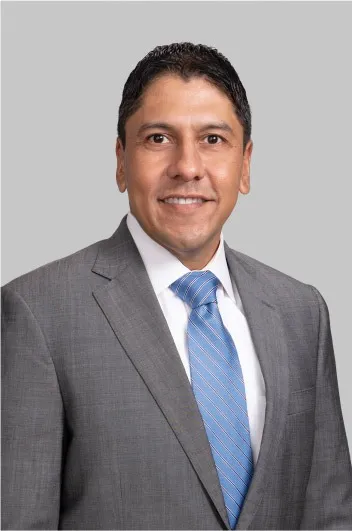What Does “No Fee Unless You Recover” Really Mean in a Car Accident Case?
By: Webb, Stokes & Sparks
After a serious car accident, many people hesitate to call a lawyer because they fear the cost. That is why the phrase “No Fee Unless You Recover” is so important. It signals that you won’t pay attorney’s fees upfront—but what does it truly mean for your case?
At Webb, Stokes & Sparks, we keep it simple. Here is what a contingency fee means, how case costs work, and why this setup helps folks get representation after a crash. Call us today at (325) 442-0711 to learn more about your options.
What Is a Contingency Fee Agreement?
A contingency fee is an arrangement where your lawyer’s fee is based on the outcome of your case. Instead of paying hourly or upfront, your attorney only gets paid if you recover compensation through a settlement or court verdict.
For car accident victims, this is often the most accessible way to pursue justice. You don’t have to risk your own savings or delay seeking help while medical bills and lost wages pile up.
Why Law Firms Use “No Fee Unless You Recover” in Car Accident Cases
Personal injury cases can be expensive and time-consuming to pursue. By offering contingency fees, law firms like Webb, Stokes & Sparks make representation available to people who otherwise couldn’t afford it.
This arrangement benefits clients because:
- No upfront legal fees: You don’t pay at the start of the case.
- Aligned interests: The attorney has a direct incentive to recover or secure the best possible settlement.
- Risk protection: If your case doesn’t succeed, you typically don’t owe attorney’s fees.
Breaking Down the “Recovery”
When firms say “no fee unless you recover,” the definition of “recover” usually means securing compensation for the client. That could be:
- A settlement from the insurance company.
- A verdict in your favor after trial.
- A negotiated resolution that provides you financial relief.
The fee is then calculated as a percentage of the total recovery. Most firms structure these percentages in line with state bar regulations and industry standards.
How Much Is the Contingency Fee?
While each firm’s agreement may differ, the exact amount often depends on:
- The complexity of the case.
- Whether the case goes to trial or resolves earlier in negotiations.
- State-specific regulations that may cap fees in certain situations.
What About Court Costs and Other Expenses?
One of the biggest questions clients have is whether they’ll owe money for case-related expenses even if they don’t recover. These expenses can include:
- Filing fees with the court.
- Costs for obtaining medical records.
- Expert witness fees.
- Deposition and transcript costs.
Different law firms handle this differently. Some cover all expenses upfront and only recover them if you recover. Others may require clients to repay certain costs regardless of outcome. That’s why it’s essential to review your agreement carefully.
Transparency Matters: What Should Be in Writing
According to the American Bar Association’s Model Rules of Professional Conduct, all contingency fee agreements must be in writing and signed by the client. A well-drafted agreement should clearly explain:
- The attorney’s percentage.
- How litigation costs will be handled.
- Whether expenses are deducted before or after calculating the attorney’s percentage.
This ensures there are no surprises when your case concludes.
Advantages of “No Fee Unless You Recover”
For accident victims, this fee structure provides several important benefits:
- Access to justice: Even those without financial resources can hire skilled representation.
- Reduced risk: Clients don’t risk paying thousands in legal fees without compensation.
- Motivation for success: Attorneys have every reason to fight for the highest possible recovery.
- Financial focus: You can direct your resources toward recovery and medical care instead of legal bills.
Common Misunderstandings About Contingency Fees
Some people hear “no fee unless you recover” and assume that nothing at all will ever come out of their pocket. While that may be true in some cases, it’s not always. Here are a few clarifications:
- Attorney’s fees vs. case expenses: Fees pay for the lawyer’s time and skill. Expenses cover third-party costs.
- Settlement amounts: The attorney’s percentage comes out of the settlement, not in addition to it.
- Responsibility for liens: If you received medical treatment paid by Medicare, Medicaid, or private insurance, there may be liens on your recovery that must be repaid.
Understanding these distinctions helps avoid surprises later.
State-Specific Rules and Fee Caps
In some states, there are limits on contingency fees for certain types of cases, such as claims involving minors or medical malpractice. Courts may also review fees to ensure they are fair and reasonable.
For Texas residents, where Webb, Stokes & Sparks proudly serves injury victims—contingency fees must comply with both ethical guidelines and state bar rules, providing an additional layer of client protection.
Why This Matters in Car Accident Cases
Car accidents can leave victims facing medical expenses, lost wages, and long-term recovery challenges. Insurance companies often work aggressively to minimize payouts, making it difficult for unrepresented individuals to secure fair compensation.
A contingency fee arrangement allows victims to pursue justice without worrying about hourly rates or retainer checks. Instead, they can focus on healing while their attorneys handle the negotiations and legal strategies needed to hold the responsible parties accountable.
Questions to Ask Before Signing a Contingency Agreement
Many clients find it helpful to ask clarifying questions before signing an agreement. Examples include:
- What percentage will be taken if my case settles versus if it goes to trial?
- Who pays expenses if we don’t recover compensation?
- How will costs be deducted from my settlement?
- Are there circumstances where the fee could change?
Clear answers to these questions help you feel confident and informed.
Webb, Stokes & Sparks: Fighting for Clients on a Contingency Basis
At Webb, Stokes & Sparks, our team of experienced personal injury attorneys understand the financial strain a car accident can cause. That’s why we represent clients on a contingency fee basis—you don’t owe attorney’s fees unless we help you recover compensation.
Our personal injury practice covers a wide range of cases, including car accidents, truck collisions, wrongful death, and more. With decades of combined experience, we are committed to helping Texans rebuild their lives after devastating accidents.
If you’ve been hurt in a car accident and are worried about costs, remember that legal help may be more accessible than you think. At Webb, Stokes & Sparks, we’re ready to fight for you on a no fee unless you recover basis.
Disclaimer: This article is for informational purposes only and does not constitute legal advice. For legal guidance tailored to your specific situation, consult a licensed attorney.
Call us today at (325) 442-0711 to schedule your consultation and learn how we can help.
Contact Our Team
Put Our Numbers on Your Side
Partner
partner
partner
partner
Partner
Latest reviews
“





